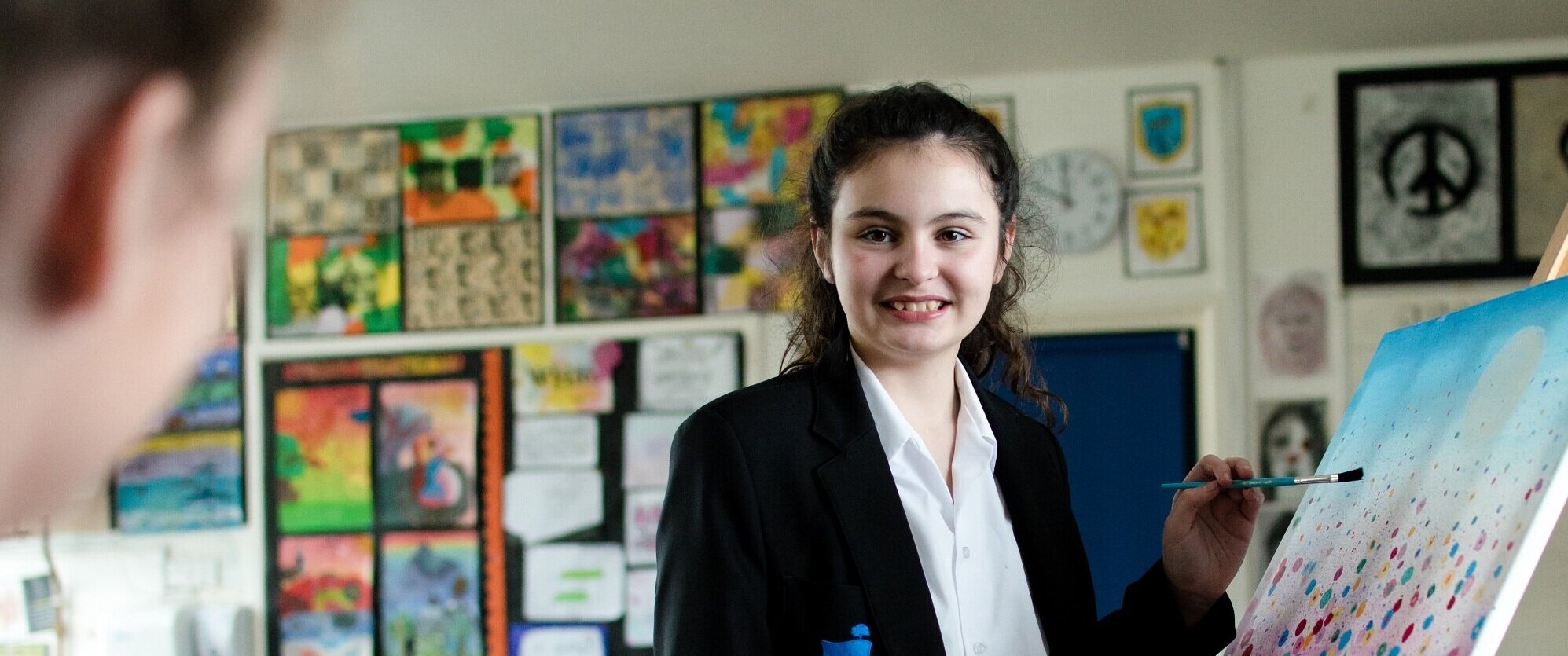
Home > Curriculum and Learning > ICT
ICT
Our students leave Whitstone School with a solid foundation in computing and the use of ICT to equip them for life in our ever changing world. More and more jobs today require confidence in using ICT and it is becoming increasingly difficult to manage your home life and finances without using ICT. It is likely that the technology that our students will be using hasn’t even been invented yet so it is really important that we instil the confidence to use technology in whatever form it takes. In order to ensure that students feel confident using future technologies, our curriculum map contains elements of both traditional ICT and elements of Computer Science which gives our students a good understanding of how the technology works to input, store, process and output data.
Our curriculum map is designed to develop important technical skills in data interpretation, data presentation and data protection. Our students cover aspects of user interface (UI) design and development, and learn how to develop a project plan for their own UI designs. Our students start the basics of designing digital products in Year 7 and every year, they deepen that knowledge to create more and more impressive products.
Cybercrime is an increasing threat – understanding the different types of threats and how to mitigate against them is vital to any business that uses and retains sensitive data. Our students develop an understanding of what cyber security is and the importance of legal and ethical considerations when using modern technologies. Our students will go from having a basic understanding of how to stay safe online in Year 7 to understanding the steps that organisations take to make sure that their data and systems are kept secure from a range of internal and external threats.
Organisations often implement technological improvements by rolling out change projects, so understanding how projects are structured is of vital importance. By the end of Year 11, our students are able to use project-planning tools, models and techniques within a digital context. Digital projects today often involve working with diverse teams across different locations. With increasing numbers of people working from home it is becoming even more important that our students develop an understanding of what a virtual work environment is and how cloud technologies allow remote teams to work together more effectively.
Our students develop their problem solving skills throughout their study of ICT. In Year 7, students learn how to think like a computer to break down and solve problems whilst programming with Scratch. In Year 8 and 9 we take this a step further by learning text based programming using Python. Whilst our students are planning their games and quizzes, they develop the skills of decomposition and abstraction to help them create algorithms and flow charts to plan the processes that they need to code. In Years 10 and 11, our students are asked to build on this knowledge further by interpreting and creating Data Flow Diagrams and flowcharts describing a range of different processes.
Digital skills span all industries, and almost all jobs in the UK today require employees to have a good level of digital literacy. The UK has positioned itself to be the ‘Digital capital of Europe’ as it continues to invest billions every year in digital skills and commerce. Our students are well placed to be a part of it.

